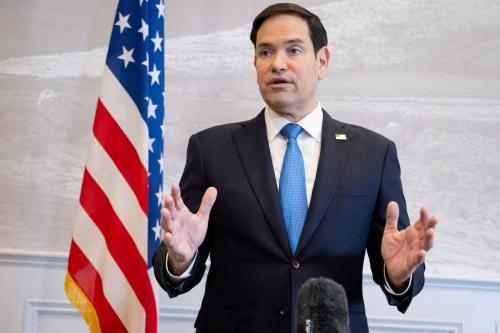Today, Afghanistan’s new president, Ashraf Ghani, looked on as U.S. Ambassador James Cunningham and Afghan National Security Advisor Hanif Atmar signed a bilateral security agreement (BSA) between the two countries that will ensure a U.S./NATO troop presence in Afghanistan beyond the end of this calendar year.
The long awaited agreement allows approximately 9,800 U.S. forces to join another 2,000 NATO troops that will remain in the country and assist Afghan Security Forces as they continue to battle a determined Taliban. Additional provisions allow special operations forces to conduct counterterrorism missions and to maintain several operating bases to facilitate better regional presence and security.
The U.S diplomatic effort to reach this point has been significant. U.S. Secretary of State John Kerry traveled to Kabul on multiple occasions over the last year to coax the political process. Countless engagements with former President Karzai failed to persuade him to adopt this bilateral partnership. Even after the Loya Jirga (the Afghan general assembly) overwhelmingly backed the BSA last November, Karzai balked.
With over three years invested in crafting the agreement, the particulars are rather unremarkable. What is remarkable, however, is the speed with which President Ghani’s administration signed it. Nothing happens quickly in Afghanistan, particularly in the bureaucratic cogs of a fledgling government, but President Ghani signaled his strong support for a continued Afghanistan-U.S. relationship with this first pivotal act of foreign policy. After years of recalcitrance by Karzai, Ghani’s willingness to complete this critical task portends a more promising future for the new democracy and a more mutually beneficial relationship for the two countries. NATO can now move beyond the task of planning for a 2014 “zero option” and focus on the still tenuous security situation, while Afghanistan and the United States can look forward with promise to a new era of cooperation.
The Brookings Institution is committed to quality, independence, and impact.
We are supported by a diverse array of funders. In line with our values and policies, each Brookings publication represents the sole views of its author(s).


Commentary
Bilateral Security Agreement: A New Era of Afghan-U.S. Cooperation
September 30, 2014